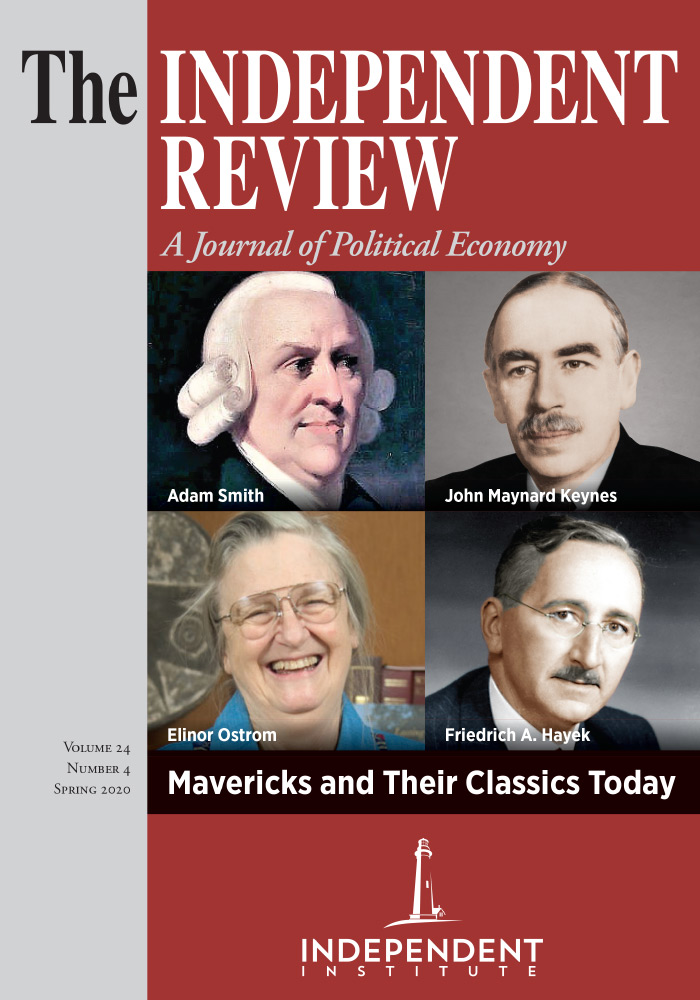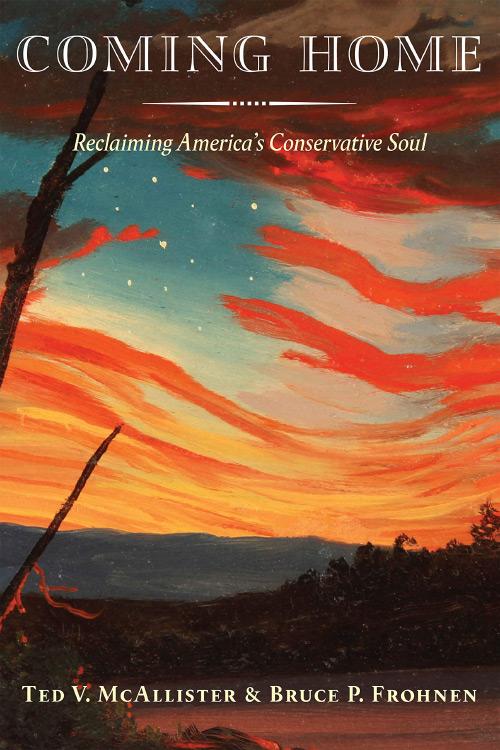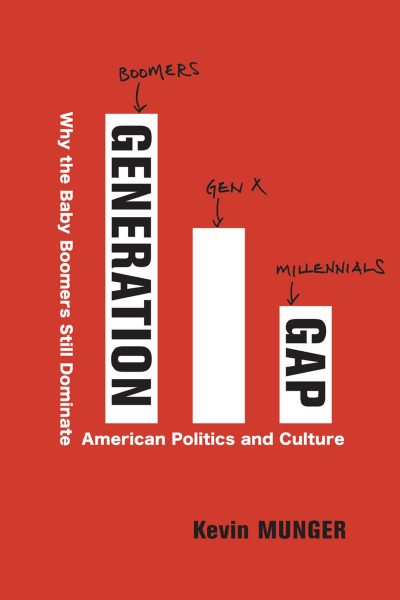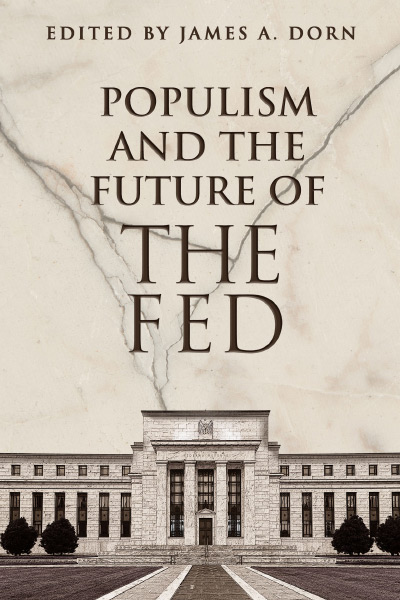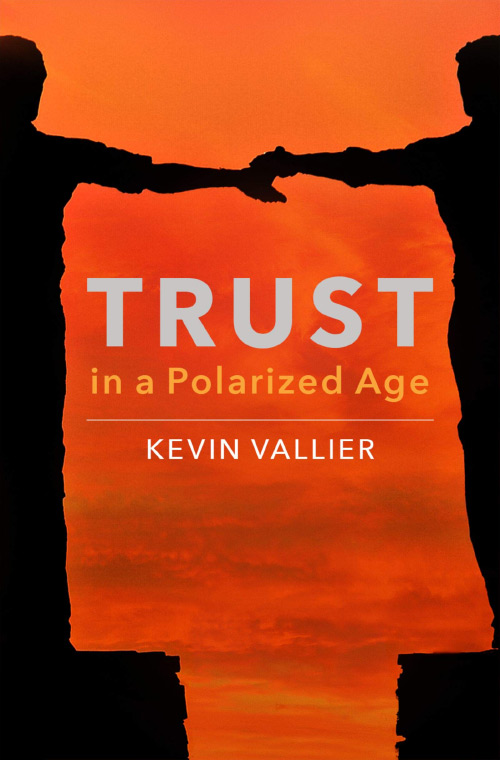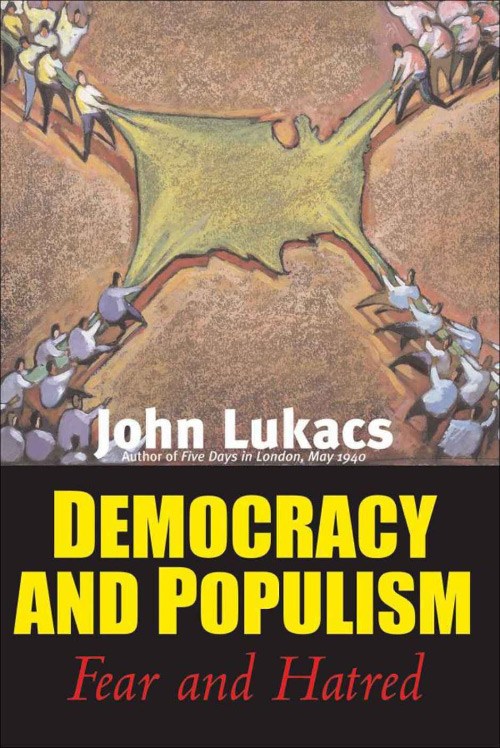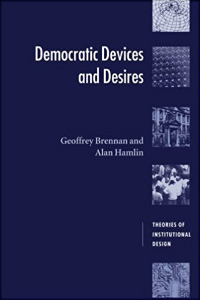The cover of The Economist recently (July 6, 2019) warned of a “global crisis in conservatism,” lamenting that “you do not have to be a conservative to find that deeply troubling” (p. 9). What is conservatism, anyway—and how does it differ from classical liberalism?
Ted McAllister (Pepperdine University School of Public Policy) and Bruce Frohnen (Ohio Northern University’s Pettit College of Law) find American conservatism’s roots in English traditions of common law and inherited liberties and argue that the overlapping intellectual balance between conservatism and [classical] liberalism throughout American history has been destroyed by a progressivism that is hostile to both. “Conservatism and liberalism in America shared common roots in English commercial, legal, and religious practice. Conservatism emphasized the importance of historical ties and customary relations. Liberalism [embodied in thinkers like John Locke and Thomas Jefferson] emphasized formal, often individual consent. Both recognized the necessity of social trust and ordered liberty. Neither was a narrow ideology in the contemporary partisan sense” (pp. 13-14).
Conservatism is hard to define: “We confront here one of the challenges inherent in the conservative tradition: it is not an ideology; it is not a comprehensive moral system declaring truths easily summarized in simple formulas. In essence, what we mean by conservatism begins with the identification and articulation of the moral principles we might call natural as they emerge from the living currents of history. This conservative task is never completed but rather always open to revision, and so requires prudential balancing without any claim to definitive abstract knowledge. Conservatism ... emerges from Americans’ lived experiences but can be grasped as guiding norms that can restrain a democratic people from radical, simplifying actions in response to bewildering ... change” (pp. 18-19). A single paragraph like this cannot adequately express the meaning of conservatism, because it is so historically rooted, but McAllister and Frohnen’s opening chapter—once digested—does a superb job. It emphasizes that conservatives have been “deeply suspicious of moral reasoning that avoids religious authority” (p. 16) and stresses the importance of property protections because “propertied citizens can take care of themselves in most matters and develop both the taste and the habit for self-reliance—a necessary condition for a self-ruling people” (p. 17).
“Thinking historically is a defining characteristic of conservatives. Conservatives recognize that we are not born fully formed—equipped by nature for life—and that we inherit more than we can possibly recognize” (p. xvi). Because of this, the first half of Coming Home explores American history and the history of American conservatism. One of the most important points of this history is that “slavery was fundamentally inconsistent with both conservatism and liberalism, even though both conservatives and liberals at times endorsed it. In doing so, conservatives and liberals violated their own principles, often employing brilliant but tortured logic in defense of an evil from which they profited, and their moral failure damaged the integrity of both American traditions” (p. 21). McAllister and Frohnen explain that slavery’s inconsistency with conservatism should be obvious as slavery was illegal under English common law. “The underlying common law doctrine of ‘free English soil’ holds that as a matter of natural justice no man who stands on English soil—including in English colonies and on English ships—can be the property of another” (p. 22). William Blackstone included the free English soil doctrine among the absolute rights of individuals in common law. “So, the introduction of slavery ... was an innovation—and abuse—rather than a logical extension of received tradition and refined common law principles” (p. 23).
This perceptive history continues by examining the disorienting effects of industrialization in the nineteenth century; the invasion of the viper of progressivism into the American garden, especially during the New Deal era; and tensions in the New Conservatism of Russell Kirk, William Buckley and others during the Cold War era. A chapter titled “Reagan and the Conservative Movement: Global Victory and Its Limits” concludes that conservatives “saw few tangible results from [Reagan’s] administration” (p. 61). “Reagan may not have understood the great conservative tradition well, but he felt American norms of self-rule in his bones” (p. 62). However, the conservative movement missed important opportunities during this period because “the focus of the movement turned overwhelmingly to political matters, narrowing and coarsening conservatism” (p. 63). With the collapse of the Soviet Union, “Cold War conservatism gained the world and lost its soul” (p. 65)—“victory in this grand ideological conflict was taken as a sign that liberty was natural and universal, not particular and historical” (p. 67). As Americans sought to export freedom to places like Iraq, the “fight for a universal human freedom [risked] wreaking havoc abroad and losing American liberties at home” (p. 68). Meanwhile Republicans were transformed into right-wing liberals. Democrats became thoroughgoing progressives and “the influential institutions that shape our social and cultural order [such as higher education] were lost to the left, often without a fight” (p. 72). As it stands now, our nanny state “actively cooperates with globalized crony capitalism to enforce a perverse individualism rooted in meaningless consumption and fluid identities, robbing us of the means of becoming a happy, self-governing people” (p. xii).
The second half of Coming Home aims to reverse this trend—to take up the fight to “rebuild our cultural home” and “return to human nature.” McAllister and Frohnen’s plan begins with “reclaiming the township.” “Today many Americans see themselves as ‘citizens of the world,’ as if we could form meaningful relationships with billions of people of whose values and ways of life we know nothing beyond what we are told by travelogues and by ideologues in the classroom” (p. 83). Instead, they argue, we need a devolution of power from the federal and state levels back to local communities.
Next, we need to relearn the function and importance of natural families. We must recognize that “the natural family ... makes us more fully human by taking us out of ourselves and into something larger and constitutive of character and virtue than our desires for recognition and emotional support” (p. 91). “No people can govern itself—can maintain a decent, civil order—if its members have not learned to govern themselves as persons, which means as members of families” (p. 92). Along with the family, we need religion, because “all of us are, by nature, religious animals” (p. 96). When religion is strong “people will not look to directives from the government ... for ultimate standards of right and wrong” (p. 98). Religion is the main force stopping government from claiming and crushing our souls.
On immigration, they forcefully explain the conservative tradition that “no sane competent nation can take in mass numbers of immigrants who lack the financial and education resources and the determination to fit in with its own way of life and to become active, productive contributors to it” (p. 124). “No nation or society can survive if its people do not share common norms and the mutual trust that grows from them” (p. 127).
McAllister and Frohnen close by addressing the educational system. We can stop hating our public schools by returning them to true local control, which will help fix a system in which “children are treated as chunks of clay, separated from any nurturing source in family and neighborhood, to be shaped by ‘experts’ into pliant parts of a progressive national community” (p. 128). Likewise, higher education—which they see as “financially profligate and culturally destructive” (p. 141)—needs to be largely defunded by taxpayers and return to its previous mission of preserving civilization.
Readers will recognize these as traditional conservative ideas—and the authors advance them with great force and flourish. I have skipped over one chapter, however. In keeping with their emphasis on the importance of localism, McAllister and Frohnen argue that big businesses must be reined in as well. Sounding rather populist, as they see it, almost all the gains of the “second wave of globalization” have gone to the poorest parts of the world and the top .0001 percent of the world population. “Workers in developed nations have been the biggest losers” and are humbled by “a new oligarchy of high-tech so-called entrepreneurs (inaccurate since many of them depend for their start on government largesse) who operate virtual monopolies on the provision of electronic infrastructure and the distribution of goods, information, and entertainment” (p. 117). “Production costs related to infrastructure, health, and the environment [have been] off-loaded to other parties ... as corporation [have become] increasingly disconnected from place, nation, or any clear external system of regulation” (p. 116). “The defining purpose of economic activity is to provide material sustenance to make home possible” (p. 108) but these businesses have undercut this goal, causing ordinary people to lose the ability to take charge of their own lives and to live in community with one another. Accordingly, “the web of advantages woven into law and policy for globalist organizations needs to be unraveled. This means, to begin with, applying antitrust law to our massive high-tech monopolies” (p. 118).
Most readers of The Independent Review will question this economic analysis. I certainly do—along with several points in the volume’s economic history. While many corporations are disconnected from place and nation, the assertions that the American middle and working class have not benefitted from recent technological changes are dubious. Real wages continue to rise across the income distribution. (After carefully examining biases in price indexes, Bruce Sacerdote (“Fifty Years of Growth in American Consumption, Income and Wages,” NBER Working Paper No. 23292, 2017) concludes that “meaningful growth in consumption for below median income families has occurred even in a prolonged period of increasing income inequality, increasing consumption inequality and a decreasing share of national income accruing to labor.” See also Congressional Budget Office, 2018, “The Distribution of Household Income, 2015,” 14) In addition, it’s not clear who these “so-called” entrepreneurs operating “virtual monopolies” might be. Perhaps Elon Musk fits into the “so-called” category, as his wealth relies heavily on government subsidies, but Tesla certainly doesn’t operate a monopoly. Did Jeff Bezos, Bill Gates, Mark Zuckerberg or the Google guys take meaningful handouts from the government? No. Have they benefited average Americans? Most would answer strongly in the affirmative. Oddly, the example the authors give is Disney, which has owned the right “to any and every portrayal of Mickey Mouse for quite long enough” (p. 119). Not much of any example of monopoly power there.
Despite these misgivings, I strongly recommend this book. Many people today—especially students, especially conservative students—have almost no clue about what it means to be conservative. If you know someone like this, consider giving him or her a copy of Coming Home: Reclaiming America’s Conservative Soul.
| Other Independent Review articles by Robert M. Whaples | ||
| Spring 2025 | Millennials, Gen Zs, Capitalism, Socialism, and Confusion | |
| Spring 2025 | Not Stolen: The Truth about European Colonialism in the New World | |
| Spring 2025 | Green Breakdown: The Coming Renewable Energy Failure | |
| [View All (106)] | ||

